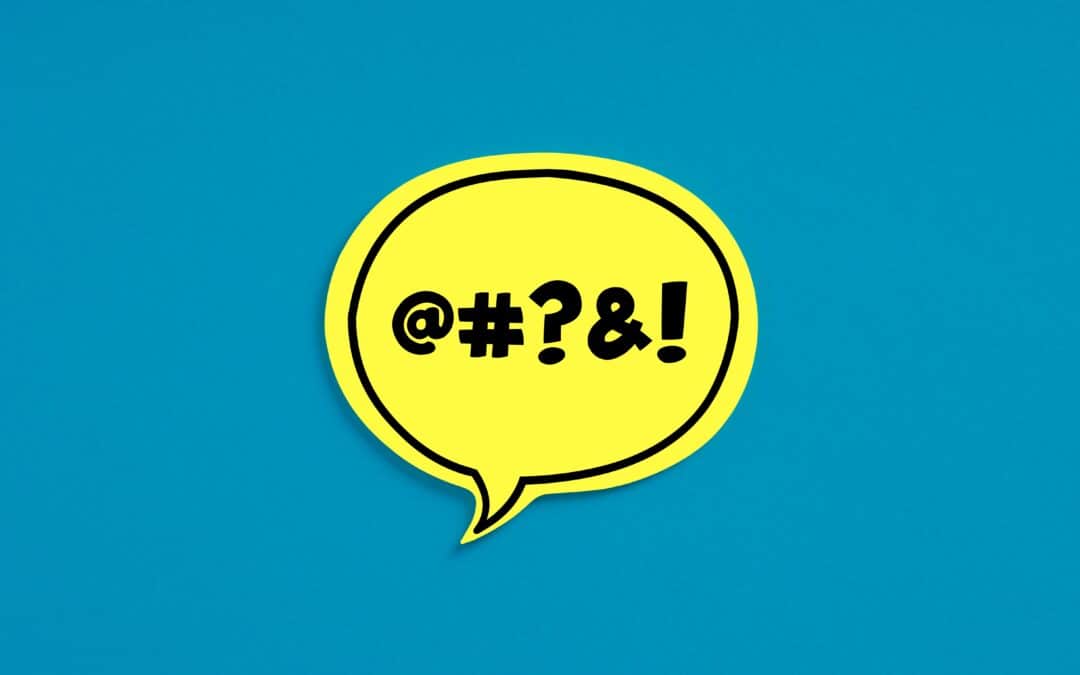Country to some of the most iconic book authors and soccer legends. The perfect place to eat dulce de leche, mate drink and alfajores, or visit The Patagonia landscapes. Argentina is well known for all of this and more. So we know your excitement for getting to know more about this country and its culture.
But if you really want to know Argentina, the best way to do it is by engaging in conversations with the locals. That way, you’ll get to know how the everyday life of an Argentinian is. After all, their language and how people live is also part of a country’s culture. Plus, they can tell you more about their history, and show you the most beautiful places.
Now, you might think that you’re an expert of the Spanish language. But do you know how to swear in Argentinian? If you don’t, this is your lucky day! We made a list of 16 Argentinian Spanish swear words.
So you can understand when people use them during a conversation. Contrary to belief, it’s actually important to learn at least a few of them, because they’re used on an everyday basis. This way, you won’t be confused and might avoid an embarrassing moment by knowing if people are insulting you or not.
15 Argentinian Swear Words
1. Boludo
Let’s start with something easy. As a swear word, “boludo” is like saying “stupid”. But it’s not a very strong insult. In fact, a lot of people use it with friends; they call each other “boludo” and they don’t get offended. If you go to Argentina, you’ll probably hear this word a lot and it’s not always used as a swear word.
2. Pelotudo
Calling someone a “pelotudo” is calling them stupid or an idiot.
There’s also the word “pelotudez”, used to refer to a dumb thing. Its plural is “pelotudeces”, which means dumb things. So, you could say that a “pelotudo” is always saying or doing “pelotudeces”.
3. Andate a la mierda
This is like the expressions “fuck off” or “go to hell”.
4. La puta que te parió
This is a strong one. Literally it means: “the whore that gave birth to you”. So, technically it’s like insulting the mother of the person you’re talking to. But the insult itself is more like “son of a bitch” or even “fuck you”. For example: If someone says something mean to you, you can reply with this phrase.
5. La concha de tu madre
This is also a strong insult. Literally it means “the vagina of your mother”. It’s another insult where people use the word “mother”.
There also exists the phrase “la concha de tu hermana”, which means “the vagina of your sister”.
You can use these phrases as insults towards someone else, like to answer something mean they told you. Or you can also use them as general expressions when something shocking or painful happens. For example: When you scrape your parents’ car, an immediate reaction could be saying: “¡la concha de tu madre!”.
Be aware of the word “concha”, because it has different meanings. It’s the Spanish word for seashell. Though seashell could also be “concha de mar”, people sometimes lose the “de mar” part and just say “concha”.
But in Argentina, they also use “concha” to refer to the “vagina”. Though you can understand what they’re talking about based on the context. Just be careful because, besides “seashell”, in Mexico “concha” it’s also a type of bread.
So, if you want to visit both countries, you could be saying two very different things by using this word in a Spanish sentence.
6. La concha de la lora
This is another version of the one above. If you’re very angry and want to tell someone to fuck off or to go to hell, you would use this phrase. For example: “¡Ya me tienes harto, anda a la concha de la lora!” / I’m sick of you, go to hell.
7. Cerrar el orto
This is a mean way of saying “shut up”. It could also be “cerrar el ojete”.
8. Hijo de puta
This is “son of a bitch”. To make it stronger, you can say “hijo de re mil puta”.
9. Hinchar las pelotas
It’s used to say that someone is annoying you. For example: If a classmate is being mean to you, you could say: “Ya! Deja de hincharme las pelotas!” / Stop annoying me.
There’s also the word “hinchapelotas”, that refers to someone annoying. For example: “Juan siempre me está haciendo bromas, es un hinchapelotas”. / Juan is always playing jokes on me, he’s a pain in the ass.
10. Romper las bolas
This is just like “hinchar las pelotas”. Used to say that someone is annoying you. There’s also the word “rompebolas”, that describes people that are a pain in the ass.
11. Ser forro
In Argentina, a “forro” is a “condom”. But when someone calls you a “forro”, it’s because they think you’re a mean or selfish person.
12. Hijo de un camión lleno de putas
Literally these reads: “son of a bus full of whores”. It’s a strong way of insulting someone else.
13. Chúpame un huevo / Me chupa un huevo
“Chúpame un huevo” literally says: “lick me an egg”; “me chupa un huevo is: “he/she licks me an egg”. But these expressions are actually used as a “fuck you” or “I don’t give a fuck”. They’re said when you don’t care about someone’s opinion.
For example: “¿No te cae bien mi hermana? ¡Chúpame un huevo!” / You don’t like my sister? I don’t give a fuck. Or: “Me chupa un huevo si no te caigo bien” / I don’t give a fuck if you don’t like me.
14. Echar pelado
This is the vulgar way of “to have sex”. It’s like “to fuck with someone”.
15. Cabeza de poronga
“Poronga” is a vulgar way of calling the penis. So, literally this is “head of penis/dick”. But the phrase is used to refer to someone that’s dumb.
16. Gil
This is someone that is dumb and not very bright.
Learn More Colloquial Spanish Expressions with TruFluency
Now you know the importance of knowing everyday expressions in Spanish, including swear words. And you’ve even learned some of them for your trip to Argentina.
But if you really want to speak Spanish like a native, you should keep learning more colloquial words and phrases. That’s the only way you’ll truly blend with the locals and understand everything they say.
But how can you do that? Well, you could check our blog on European Spanish swear words, or learn some Mexican idioms. And then, you can enroll in our Spanish classes.
Here at TruFluency we have native Spanish teachers that will teach you colloquial expressions and other useful things. They’ll also make sure you have enough speaking time during each lesson. So, you can become fluent in Spanish and hold conversations with native Spanish speakers.
Check our testimonials to see for yourself how good we are. Then, choose a teacher and start your journey to Spanish fluency., or try our trial classes – 2 hours for only $49!





